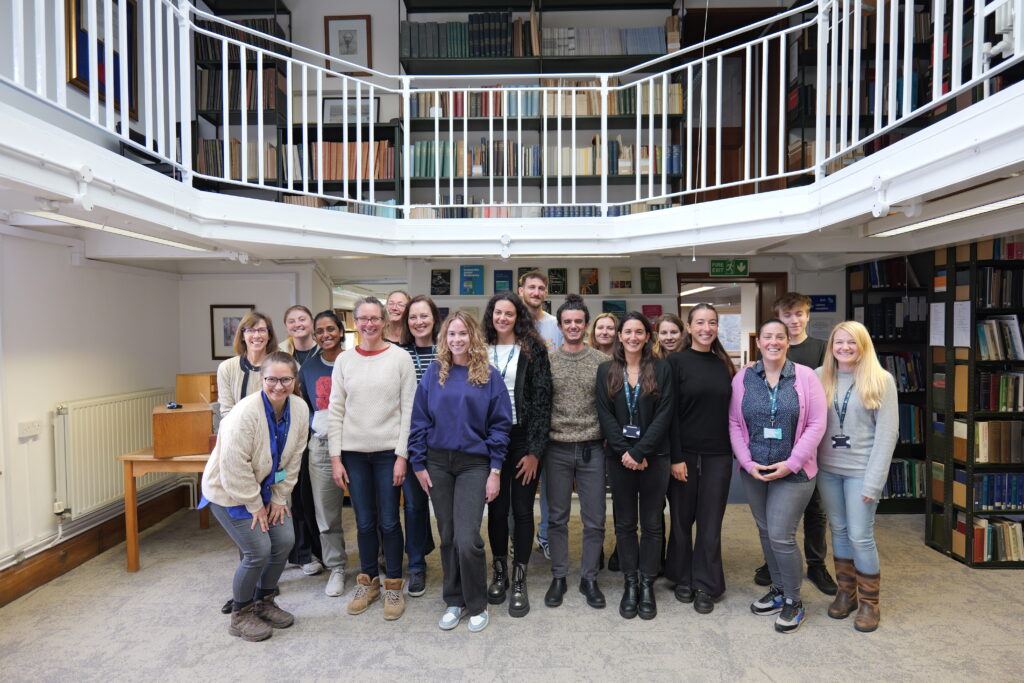The MBA recently hosted the internationally-recognised PRIMER and PERMANOVA+ two-week hybrid (in-person and online) course in multivariate analysis, delivered by PRIMER-e.
The MBA is welcoming marine scientists, ecologists, data-analysts and practitioners from around the world to the iconic Laboratory on Citadel Hill, Plymouth, and online to ensure global participation. Presented by Marti J. Anderson, an ecological statistician. Marti is a Distinguished Professor Emerita of Te Kunenga ki Pūrehuroa Massey University, New Zealand, who is also a Fellow of the Royal Society of New Zealand (FRSNZ) and the Director of the research and software development company, PRIMER-e. The course moves beyond just demonstrating methodologies and into applying advanced statistics and computing to real-world large-scale datasets.
Hosting this course reflects the MBA’s status as one of the UK’s leading marine science research institutions and training venues, giving us a direct role in advancing sophisticated analytical approaches for large and complex ecological datasets, building on our tradition of marine research and training.

This two-week course offering at the MBA was attended (either in person or online) by 32 research students and professionals, including academics from universities, public organisations and private consulting firms, hailing from 13 different countries including Australia, United Arab Emirates, South Africa, Denmark, Ireland, Italy and the USA.
Course structure
Week 1 – PRIMER – gave attendees extensive coverage of non‐parametric methods for multivariate data using PRIMER software. Topics included data pre-treatment (transformations, normalisations), resemblance/distance measures (Euclidean, Bray-Curtis, Jaccard etc), cluster and ordination methods (hierarchical, PCA, MDS, tmMDS), non-parametric permutation tests (ANOSIM), biodiversity measures (richness, evenness, dominance), and linking biotic and abiotic datasets (RELATE, BEST, BIOENV).
Week 2 – PERMANOVA+ – tackles more advanced, semi‐parametric methods suited to high-dimensional, complex experimental or observational designs. Topics include partitioning variation for high-dimensional data via PERMANOVA, tests of centroids and dispersion (PERMDISP), complex multifactor designs (nested, crossed, repeated measures, BACI), multivariate responses to continuous predictors (DISTLM), canonical analyses (dbRDA, CAP) and predictive models.
Why the focus on large/complex datasets matters
In modern marine science and ecology, datasets increasingly involve many variables (species abundances, functional traits, environmental gradients, spatial/temporal replication) and complex sampling/experimental designs. Traditional methods often examine just one species or variable at a time, or can handle multi-species systems, but only for simple (e.g. one-factor) designs. This course instead emphasises how to handle large-scale multivariate systems, dealing with hundreds of species that simultaneously respond to multiple interacting factors. PRIMER/PERMANOVA methods and software empower researchers to achieve rigorous inference via robust permutation methods, to visualise complex patterns, and to interpret results directly for decision-making
At the MBA, we are proud to support this evolution in analytical capacity, empowering researchers and practitioners to unlock deeper insights from marine ecosystem data. By providing a venue and working directly with participants, we reinforce the MBA’s ambitions to lead in cutting-edge quantitative marine science.
We have a number of meeting rooms for hire, click here to find out more about what we offer.